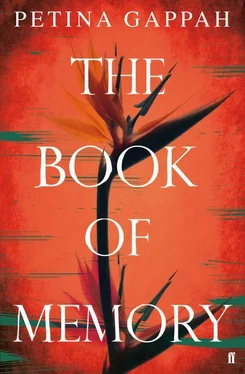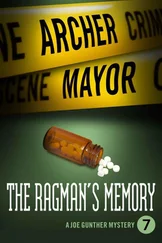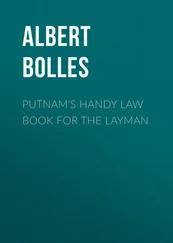When we did not go to school, he often took us to the shops in a group to buy us centacools or maputi. Joyi and I moved around and about them. Nhau, who had appointed himself my tormentor, would come after us, rolling a bicycle rim. With my father beside me, Nhau could only content himself with dancing out his torment and making faces. My father was my bulwark, my protection against my mother, and my protector against the torments of Nhau.
Now that I think about those days, I wonder what happened to Nhau. He was my main torturer, and if he became the man he promised to be as a child, he may well be next door, at the men’s section of Chikurubi, perhaps one of the infamous car thieves for which Mufakose has become notorious. On the streets of Mufakose are Harare’s thieves shaped, forged and burnished. Or perhaps he is a deacon in one of those ever-sprouting churches, a pillar of his community and a father of four. Or perhaps nothing that extreme but rather something in between, a perfectly ordinary man.
I have already said that my father was unlike any of the other fathers of the children that we knew because he did not go to work. He was also unlike other fathers because he did not drink. Lameck’s father always staggered home from the Rufaro Marketing beer garden near the shops. On the nights that it was too hot to sit inside, I sat on the veranda and watched him stagger home, held up between Lameck and his brother Nathan, singing, ‘Vakaita musangano mapositori ekwaMarange, pamusana pekuda kuziva akatipenda nependi nhema, yaive mugaba, mugaba reurombo.’ On payday, he lost most of his money at the beer hall, either spent or stolen, until the manager at his factory agreed to give his wages directly to Lameck’s mother. Sometimes he was so gone that they borrowed a wheelbarrow from my father so that they could wheel him home. He would fall out and Lameck would try to coax him back in.
Rispah’s mother chased Rispah’s father up and down our road when she found that he had spent all his pay on horses at the Mashonaland Turf Club. Nhau’s father had a woman come to their house and threaten to remove all her clothes in public if he did not admit that he was the father of her child.
My father was not like this; he was not a drunk, or a gambler or a womaniser of any kind. His love for the horses was a passive activity; it did not see him gamble his money away at the Mashonaland Turf Club. In our family it was our mother, and not our father, who chastised us. At school, the children were afraid of their fathers. They spoke of the instruments that their parents used to beat them.
Lameck’s father was a policeman and used his truncheon.
Patience’s father liked to use the sjambok.
Nhau’s father made him and his brothers prepare their instruments of punishment: they picked a thin branch from a peach tree and stripped it of leaves, the better to leave a stinging, burning pain on exposed skin.
When she needed to thrash us, our mother used an old woven leather belt that once belonged to my father. She hit us with the buckle of it. Oftentimes, when the punishment was not premeditated, she took up whatever instrument came within her reach.
I know that this will seem like the most shocking abuse to you, but to us it was our everyday reality. We were no different from other families. We even found a certain heroism in the amount of punishment we could take. We admired Nhau for his ability to withstand the most severe lashing without the slightest whimper, and gathered round to marvel at his welts. It was not uncommon to hear children boasting about the scars they had picked up or about the pain they had endured, exaggerating it for effect.
We all pretended that we had not heard each other crying out, ‘Ndagura, ndagura’ , crying out in penitence to stop the lashing.
I do not mean to suggest that all levels of violence were accepted. Clarissa is here because she beat a pupil to death. She has lost an eye because the father of the child she killed attacked her outside court. It was not uncommon to find another parent, an adult, come to the rescue of a beaten child, clapping hands in respect to the enraged parent, pleading for an end to the punishment as a child had had enough.
Anything, I felt, could be borne with a sherbet or centacool in my hand and my father beside me — the same father who handed me over to Lloyd at the Post Office on Inez Terrace and walked away without a single backward look.

My mother spent most of her time indoors because she suffered from a headache that seemed to have no cure. On the days she was well, she plaited women’s hair from our house. These were the days when only women with money had perms. The women in the township, with little money to spare, distinguished each other from neighbours by plaiting their hair in ever-more-elaborate fashions. They regarded hair as so much virgin territory to be conquered and twisted or stretched with a hot comb until it was compliant.
She was skilled in this conquest, my mother; she knew how to slather hair with Vaseline before stretching it without burning the scalp. She could plait hair into any fashion, weaving a tapestry of zigzags and other patterns across the head.
My skin made it impossible for my mother to stretch or plait my hair. My scalp was too sensitive, and grew hot in the sun.
My mother did Joyi and Mobhi’s hair every Friday. She sat on a three-legged stool outside our house, and they sat on the floor before her. She scratched their scalps to remove dandruff. She then divided the hair into as many sections as the pattern demanded. Then she wound the thread around each section, connecting it to the next. She specialised in plaiting with a needle to create long, thin rows that were evenly spaced and left the scalp gleamingly exposed.
Joyi’s face wore a pinched expression after each hair session; she stuck out her head as though it was now too heavy to rest on her shoulders, or like it carried an invisible load. It was worse for Mobhi, who cried herself to sleep on hair-plaiting nights. It was only after two days that their faces relaxed as the style settled in.
On special occasions, my mother stretched their hair with a stretching comb. It was only when I watched Liz Warrender groom the Compton-Jones’s horses that I discovered that these stretching combs were actually intended to be curry combs for groom horses.
The moments where I was alone with my mother are so few that each one stands out. The only time I left the house with any regularity, apart from going to school and church, was in connection with what my mother called my illness. It was mostly my father who came with me to the hospital. When I was particularly ill and the flies settled on my breaking skin, and I saw the world only through a well of water, my father wrapped me in a blanket and I walked in the suffocating heat to the bus stop to take a bus to Gomo Hospital.
When they were not in school, my father insisted that Joyi and Mobhi come too. They resented this because they would much rather have been playing on Mharapara than sitting in the waiting room full of sickness and a hushed silence that did not encourage giggles and fidgeting. The only consolation for Joyi was that it gave her material to use in her games with the other children. ‘Let’s play Memo Goes to Hospital,’ I heard her shout once, immediately followed by the loud squabbling voices of the other children insisting that they wanted to be the doctor or the nurse — no one wanted to be me.
At the hospital, the doctors lifted my eyelids, and the nurses put gentian violet on my blisters, leaving me with purple-stained skin. They told my father to keep me out of the sun. Mostly we saw the nurses, scowling beings in white who treated my illness as though it were an inconvenience. The white caps on their heads seemed to float, halo-like, in the air above them. They looked soft and clean and made me feel dirty and unwashed.
Читать дальше













